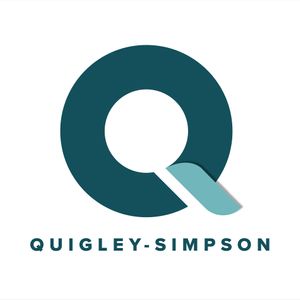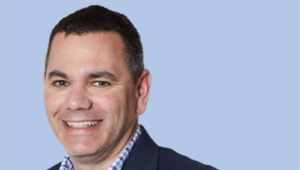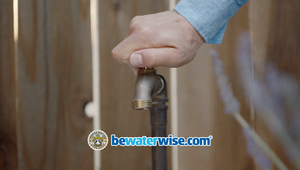
My Biggest Lesson: Chris Posthuma

Chris Posthuma, studio manager at Quigley, has worked as a designer, art director, creative director, and creative manager in-house for brands and agencies, large and small. The accounts he has worked on are as varied as the positions he's held, ranging from small niche brands to global powerhouses in various industries—from sports equipment and apparel, boating, travel, and entertainment to health, telecommunications, and finance. At Quigley, he works primarily on the JPMorgan Chase cobrand credit card business and Ball Aluminum Cup and Earthjustice.
One of the biggest lessons of my career is not entirely work-related. It’s a lesson about work-life balance that I think many people have come to appreciate in the post-pandemic world. My epiphany, however, came before the phrases quarantine, remote work, hybrid schedules, or the great resignation had become part of our daily discussions.
About eight or nine years ago, while contemplating my navel, which was in the middle of an ever-expanding belly due to the sedentary nature of my work, I realized that I had to get more physical activity in my life. My work as a studio manager is mentally stimulating and engaging, but it’s a stretch to call it physically challenging. I needed to find something to engage my body as well.
I grew up in and around the ocean and am lucky to still live near it, so something involving water seemed like a good fit. I had family members who had been doing outrigger paddling for several years, and it looked like an interesting and unusual sport.
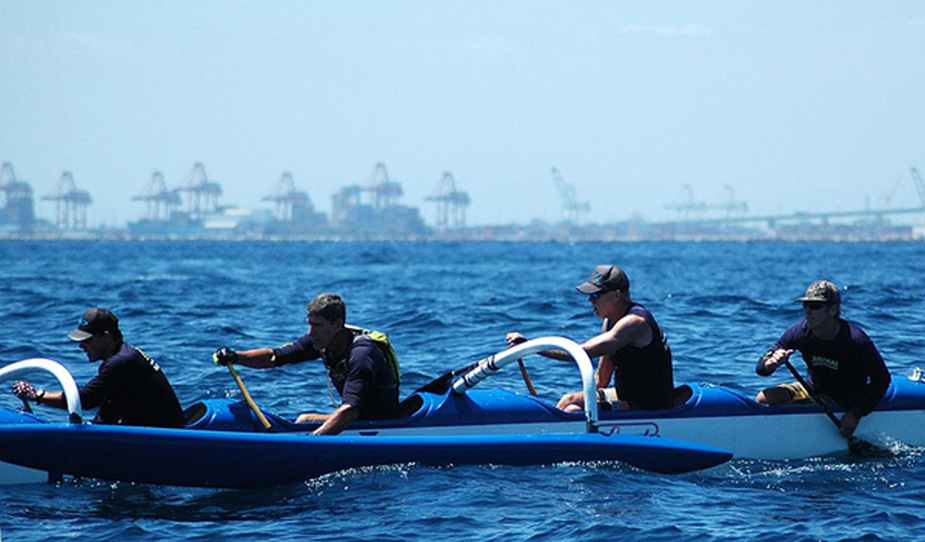
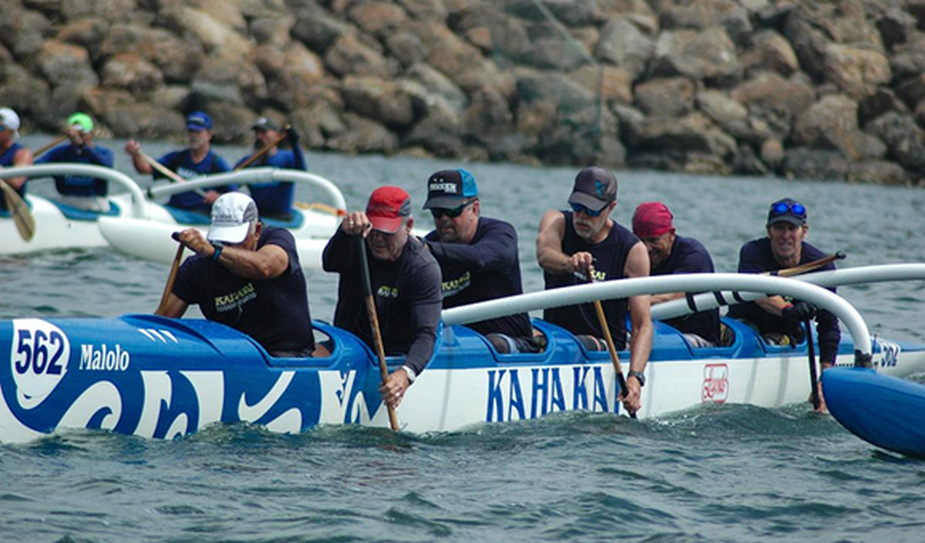
Outrigger paddling originated in Polynesia as a means of transportation and exploration. The Polynesian people colonized islands throughout the Pacific using outrigger canoes, reaching places as distant as New Zealand (Aotearoa) to the south, Easter Island (Rapa Nui) to the east, Tahiti to the west, and Hawaii to the north. Today, it is practiced throughout the world as a recreational and competitive sport. (Disney fans–especially the young ones–might recognise this kind of paddling from the animated musical Moana.)
I decided to give it a shot with one of the local clubs near me and have been paddling ever since–both individually in a one-man canoe and as part of a six-man crew in a larger vessel.
I say that my biggest lesson was the importance of work-life balance and that’s true, but the deeper truth is that paddling has continually taught me lessons that I bring back to work with me. Paddling requires teamwork, patience, sacrifice, diplomacy, and communication.
In a six-man outrigger canoe, the paddlers sit in a line from front to back. Each seat has a distinct role to play. Seat 1 sets the style, rhythm, and stroke rate for the canoe. Seat 2 mirrors seat 1 so that both sides of the canoe work together. Seat 3 is a power seat and part of the engine room of the canoe. This person also usually calls out “changes,” letting paddlers know when to switch paddling from one side of the canoe to the other. Seat 4 is also a power seat. Seat 5 is an integral member of the powerhouse but also has the best view of the canoe and can monitor the timing of the paddlers. Seat 6 is the steerer who motivates the crew and provides positivity, direction, and feedback. I usually paddle in seats 3 or 4 but have paddled in seats 1, 2, and 5 as well. Learning to steer a canoe (paddling in seat 6) is one of my goals for the future.
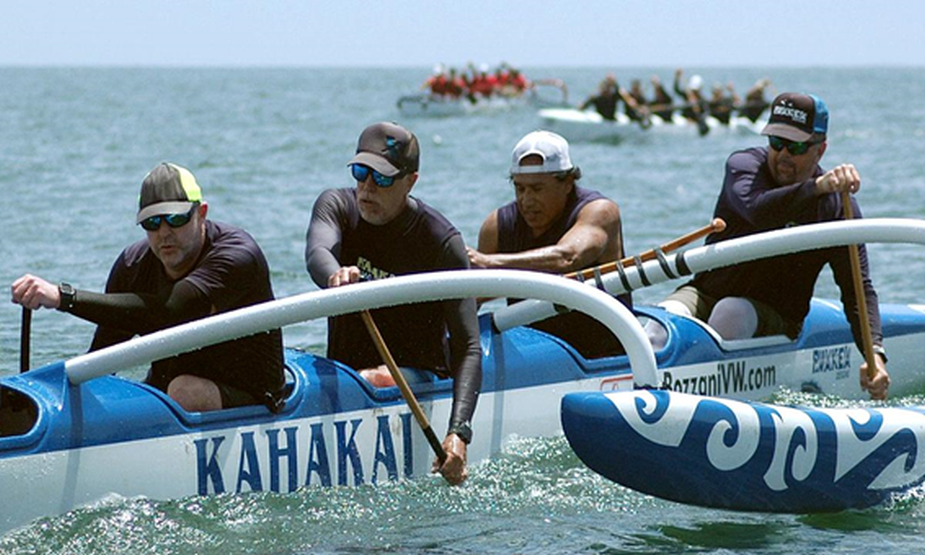
Working in advertising also requires that one work as part of a team. That team usually consists of far more than six people and includes those working in a variety of disciplines—account, data and analytics, project management, creative, production, media, and more. Each discipline usually has its own internal teams, but in a manner similar to paddling, everyone needs to know their role and place in the process in order for the team as a whole to succeed.
Like my work, paddling is highly technical which means the learning process is never-ending. In paddling that may be learning to better read the ocean, refine your paddle technique or better blend with your crew. In my work, that could be learning the latest design and advertising trends, how to better use data to inform and/or target a campaign, or learning mastering new software and technical skills in our constantly ever-evolving digital world.
Learning to paddle has changed my life. Typically, I’m out on the water three to five days a week rowing 10-12 miles during the week and 12-15 miles on weekends. I also paddle competitively in races throughout Southern California.
I find a great deal of inspiration in paddling—from my coaches, teammates, and fellow paddlers, but also from those at the highest level of the sport, which consists of elite paddlers from all over the world, with the very best undoubtedly coming from Tahiti, where outrigger canoeing is the national sport on a level akin to football in the United States.
Eight years ago, when I set out to find work-life balance and physical fitness, I never imagined that I would find something that would inspire me so much and teach me so many lessons about teamwork and perseverance that have a direct impact on my work. The physical activity and the vitamin “sea” I get on the water allows me to be more relaxed and focused, which also helps me be more focused in my work.
I’m not suggesting that paddling 12 miles on the ocean is the key to everyone’s happiness, but I believe that finding your passion outside of work will make you a more valuable team member at the office and I can’t imagine what life would be like if I had just joined a gym.







